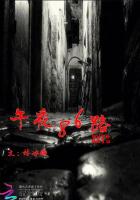Besides, how does "here" differ from "at Athens"? The demonstrative "here" admittedly signifies place; so, then, does "at Athens": "at Athens" therefore belongs to the category of Place.
Again, if "at Athens" means "is at Athens," then the "is" as well as the place belongs to the predicate; but this cannot be right: we do not regard "is a quality" as predicate, but "a quality."Furthermore, if "in time," "in place" are to be ranged under a category other than that applying to time and place, why not a separate category for "in a vessel"? Why not distinct categories for "in Matter," "in a subject," "a part in a whole," "a whole in its parts," "a genus in its species," "a species in a genus"? We are certainly on the way to a goodly number of categories.
15.The "category of Action":
The quantum has been regarded as a single genus on the ground that Quantity and Number are attributes of Substance and posterior to it;the quale has been regarded as another genus because Quality is an attribute of Substance: on the same principle it is maintained that since activity is an attribute of Substance, Action constitutes yet another genus.
Does then the action constitute the genus, or the activity from which the action springs, in the same way as Quality is the genus from which the quale is derived? Perhaps activity, action and agent should all be embraced under a single head? But, on the one hand, the action- unlike activity- tends to comport the agent; and on the other, it signifies being in some activity and therefore Being-in-Act [actual as distinct from potential Being].Consequently the category will be one of Act rather than of Action.
Act moreover incontestably manifests itself in Substance, as was found to be the case with Quality: it is connected with Substance as being a form of motion.But Motion is a distinct genus: for, seeing that Quality is a distinct attribute of Substance, and Quality a distinct attribute, and Relative takes its being from the relation of one substance to another, there can be no reason why Motion, also an attribute of Substance, should not also constitute a distinct genus.
16.If it be urged that Motion is but imperfect Act, there would be no objection to giving priority to Act and subordinating to it Motion with its imperfection as a species: Act would thus be predicated of Motion, but with the qualification "imperfect."Motion is thought of as imperfect, not because it is not an Act, but because, entirely an Act, it yet entails repetition [lacks finality].It repeats, not in order that it may achieve actuality-it is already actual- but that it may attain a goal distinct from itself and posterior: it is not the motion itself that is then consummated but the result at which it aims.Walking is walking from the outset; when one should traverse a racecourse but has not yet done so, the deficiency lies not in the walking- not in the motion- but in the amount of walking accomplished; no matter what the amount, it is walking and motion already: a moving man has motion and a cutter cuts before there is any question of Quantity.And just as we can speak of Act without implying time, so we can of Motion, except in the sense of motion over a defined area; Act is timeless, and so is Motion pure and ******.
Are we told that Motion is necessarily in time, inasmuch as it involves continuity? But, at this, sight, never ceasing to see, will also be continuous and in time.Our critic, it is true, may find support in that principle of proportion which states that you may make a division of no matter what motion, and find that neither the motion nor its duration has any beginning but that the division may be continued indefinitely in the direction of the motion's origin: this would mean that a motion just begun has been in progress from an infinity of time, that it is infinite as regards its beginning.
Such then is the result of separating Act from Motion: Act, we aver, is timeless; yet we are forced to maintain not only that time is necessary to quantitative motion, but, unreservedly, that Motion is quantitative in its very nature; though indeed, if it were a case of motion occupying a day or some other quantity of time, the exponents of this view would be the first to admit that Quantity is present to Motion only by way of accident.
In sum, just as Act is timeless, so there is no reason why Motion also should not primarily be timeless, time attaching to it only in so far as it happens to have such and such an extension.
Timeless change is sanctioned in the expression, "as if change could not take place all at once"; if then change is timeless, why not Motion also?- Change, be it noted, is here distinguished from the result of change, the result being unnecessary to establish the change itself.
17.We may be told that neither Act nor Motion requires a genus for itself, but that both revert to Relation, Act belonging to the potentially active, Motion to the potentially motive.Our reply is that Relation produces relatives as such, and not the mere reference to an external standard; given the existence of a thing, whether attributive or relative, it holds its essential character prior to any relationship: so then must Act and Motion, and even such an attribute as habit; they are not prevented from being prior to any relationship they may occupy, or from being conceivable in themselves.
Otherwise, everything will be relative; for anything you think of-even Soul- bears some relationship to something else.
But, to return to activity proper and the action, is there any reason why these should be referred to Relation? They must in every instance be either Motion or Act.
If however activity is referred to Relation and the action made a distinct genus, why is not Motion referred to Relation and the movement made a distinct genus? Why not bisect the unity, Motion, and so make Action and Passion two species of the one thing, ceasing to consider Action and Passion as two genera?
18.There are other questions calling for consideration:















